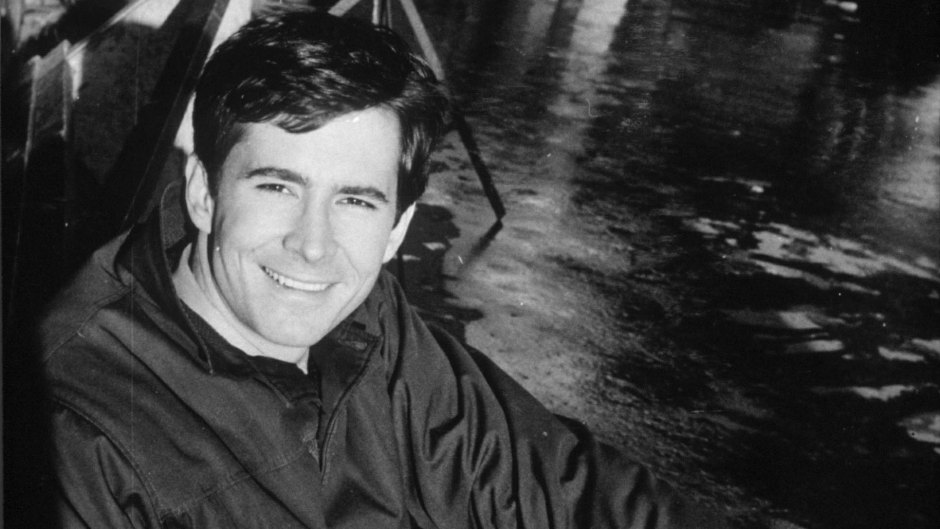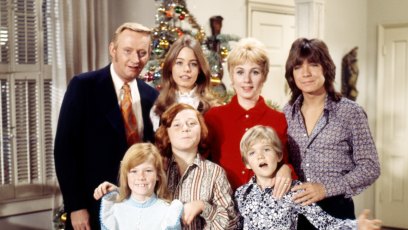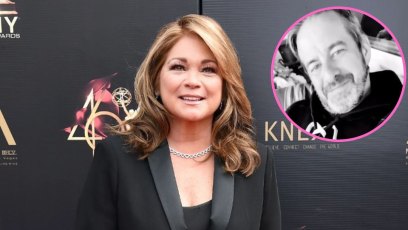
Shutterstock
‘Psycho’ Star Anthony Perkins ‘Was Devoted’ to His 2 Sons Whom He Shared With Wife Berry Berenson
In 1958, Anthony Perkins was set to become Hollywood’s biggest heartthrob. Touted as “the hottest property in motion pictures,” he drew comparisons to James Dean, Marlon Brando and Elvis Presley. But the handsome, 6-foot-2 actor downplayed the praise.
“If you’re the number one star, you can’t go anywhere except to be the number two star,” he said. “It gives you a kind of point of no return in your career where you could possibly never achieve anything more.”
Two years later, Tony played the role of Psycho’s Norman Bates, one of Hollywood’s most indelible villains. “People couldn’t look at him the same way,” Charles Winecoff, author of Split Image: The Life of Anthony Perkins, tells Closer.
As much as Hollywood had tried to paint him as a romantic lead, Tony’s intensely independent spirit — and complicated personal life that included a secret romance with fellow big-screen hunk Tab Hunter — didn’t fit the traditional mold.
“He was really his own person,” says Winecoff. “He doesn’t fall into any categories. Whatever his struggles were, he’s just unique.”
Struggle was part of Tony’s life from a very early age. His father, actor Osgood Perkins, died of a heart attack when Tony was 5, devastating him.
He was raised in Manhattan by his mother, Janet, and they “became abnormally close,” mirroring the relationship Norman Bates had with his mother. The actor later hinted that Janet was prone to inappropriate displays of affection.
Acting gave him an escape from the sorrow and confusion of his young life. “There was nothing about me I wanted to be,” Tony said. “I felt wonderfully happy being someone else.”
He followed in his father’s footsteps, rising to fame in Friendly Persuasion and other films before checking into the Bates Motel in 1960.
The role made him a sensation but came at a high price: After Psycho, Hollywood only wanted him to play more monsters. “People don’t usually think of me for comedies,” he said, “and I do like doing comedy.” At one point, he went two years without working.
His personal life was also very complex. Tony often had relationships with men and dated dancer Grover Dale for several years.
In those days, no one discussed their sexuality, but many were surprised by his 1973 marriage to actress and photographer Berry Berenson.
The union produced two sons, Oz and Elvis, and seemed to have a good effect on Tony. “Ever since I got married and had kids, my life became much more structured and ordinary,” marveled the actor, who took pride in his family.
“He was devoted to them,” adds Winecoff. The actor remained married to Berry until his death from an AIDS-related illness in 1992 at age 60. Tony believed in going his own way.
The second half of his career was filled with many supporting character roles that he could happily disappear into. He also returned to play Norman Bates in two big-screen sequels, the latter of which he directed.
“I think Psycho is one of the things that’s given me longevity in this business,” Tony said. “I would have hated to disappear like so many actors in the ’50s did. … I’m still here. That’s all I know.”







































